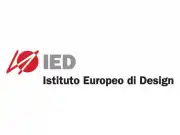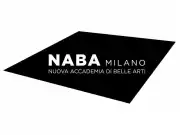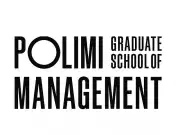Apply and Study in Rome for a Bachelor's or Master's Degree

Master - Jewelry Design
IED Istituto Europeo di DesignSince ancient times, historians and anthropologists have studied the jewelry trade.
Jewels represent stories, wants, and identities today. Making jewelry entails expressing one's value and sense of achievement to represent oneself and society.
Today's jewelers must know how to…

Master - Interior Design for Hospitality
IED Istituto Europeo di DesignStudy for a Master's in Interior Design for Hospitality at IED Roma and learn how to shape experiences via the design of spaces.
We'll be paying special attention to the social and organizational components of this work, stressing the importance of maintaining open communication between…

Bachelor of Arts - Interior Design
IED Istituto Europeo di DesignDiscover the power of interpersonal connections as you work across disciplines on cutting-edge technological, artistic, and project design culture in a global setting.
Safe, comfortable, and emotionally engaging locations that foster quality of life and interpersonal connections.
Work…

Bachelor of Arts - Fashion Design Management
NABA Nuova Accademia di Belle ArtiThe goal of the Fashion Design Management course is to provide students with the knowledge and expertise necessary to successfully navigate the myriad interdependencies that exist between the design process and the various stages of the product's communication and promotion in the fashion industry.
Students…

Master of Arts - Fashion and Costume Design
NABA Nuova Accademia di Belle ArtiThe MA in Fashion and Costume Design prepares students to take on a wide range of fashion and costume design-related projects, including those that are experimental, workshop-based, or cultural in nature.
Over the course of two years, students will acquire a working knowledge of the vocabulary,…

Master - Screenwriting for Series
NABA Nuova Accademia di Belle ArtiThis Master's degree aims to cultivate professionals in the field of audio-visual screenwriting by providing them with an intensive curriculum that integrates theories, methods, and design practices with the goal of fostering students' ability to analyze and code contemporary languages from multiple…

Dual-Degree MBA
POLIMI Graduate School of ManagementThe MBA is the cornerstone of our business schools because it trains the next generation of leaders for the most prestigious corporations, equipping them with the skills necessary to assume significant responsibilities and to confront challenges related to sustainability, digital innovation, and society…

Master - Luxury Management and Customer Experience — Italian Excellence
POLIMI Graduate School of ManagementThe Master's program aims to develop future professionals in the hospitality, jewelry, and luxury industries, with an emphasis on Italian excellence and the luxury customer experience.
It also aims to equip young professionals with the technical and managerial skills necessary to operate…

Bachelor of Arts - Product and Innovation Design
NABA Nuova Accademia di Belle ArtiThe Product and Innovation Design specialisation aims to aid students develop their own design language in line with the varied visions of aesthetics and society, beginning with the history of international design and focusing in particular on the production of innovations through use of technologies,…

Diploma - Graphic Design
IED Istituto Europeo di DesignIn modern graphics, immerse yourself in this adventure and take on the role of protagonist. You will get all the skills necessary to comprehend and understand the world around you and to create original yet recognizable creations through this course.
You will be introduced to a training…
Study in Rome
Rome is the cradle of world history, whose influence on culture, politics, and art is hard to overestimate. It is the third most visited city in Europe and the fourteenth in the world. Each year, Rome welcomes millions of tourists who discover the city's great cultural and archaeological monuments, taste local cuisine, and experience the vibrant atmosphere of the city.
The historical center of Rome is listed as a UNESCO World Heritage site, and its attractions, such as the Vatican Museum and the Colosseum, are among the most visited tourist destinations in the world.
But it’s not just the grand past and tourist attractions that make Rome one of the greatest cities in the world:
- It is a cosmopolitan capital with a population of over 2.83 million people;
- It is the largest and most populous commune in the country;
- It ranks as the fourth most populous city in the European Union.
Rome has always been a center of advanced education. Its educational institutions play a significant role in training skilled professionals in Europe: the city hosts numerous academies, colleges, and universities.
Many Roman universities are ranked among the world’s most prestigious:
- 14 out of 19 universities in Rome are represented in at least one international ranking;
- 24 reputable rankings, such as The World’s Most International Universities and QS World University Rankings, include Rome's institutions in the Top 200 universities worldwide;
- The oldest university in Rome, "Sapienza" (Università di Roma – La Sapienza), holds the highest ranking in Italy. It is the largest university in Europe, with over 100,000 students enrolled.
Italy’s capital offers a wide range of professional and academic opportunities for international students seeking higher education in Rome: from renowned universities to world-class research centers.
The city’s welcoming spirit, high standard of education, and vibrant atmosphere make studying in the "Eternal City" (La Città Eterna) a unique adventure. All of this broadens the horizons of international students and shapes a successful future for them.
Bachelor's and Master's Programs in Rome
Rome has become one of the most popular destinations for higher education abroad for international students. High-ranking universities, an ever-growing list of English-taught programs, and affordable tuition have made the city a highly attractive educational destination.
Students can choose their language of study, as Rome offers many programs in both English and Italian. Many international students pursue their bachelor’s degree in Italian to expand their career prospects in Italy in the future.
Documents required for a bachelor's program in Rome:
- Certified copy of a secondary education document (high school diploma or equivalent);
- Translated copy of the secondary education document into Italian or English, certified accordingly (if the original is in a foreign language);
- Transcript of grades for one year of university study in the home country, a Foundation program certificate, or an International Baccalaureate (IB) or A-level diploma;
- Language proficiency certificate, such as IELTS or TOEFL for English-taught programs or CILS for Italian-taught programs. Some universities also accept Duolingo certificates;
- Application form provided by the university;
- Certified copy of a passport or other identification document;
- Recommendation letters from one or more teachers;
- Additional documents specified by the university or program requirements, such as an essay, portfolio, etc.;
- Copy of a valid passport;
- Two passport-sized photos.
The document list may vary depending on the university and program. For example, some may require entrance exam results, while medical programs may require the IMAT exam. Check each program’s requirements before applying.
Documents required for a master's program in Rome:
- Certified copy of a bachelor’s degree or equivalent;
- Translated copy of the bachelor’s degree into Italian or English, if the original is in a foreign language;
- Bachelor’s degree transcript;
- Resume or CV (Curriculum Vitae);
- Letter of recommendation from academic or professional referees;
- Motivation letter;
- Language proficiency certificate (e.g., TOEFL or IELTS for English-taught programs or CILS for Italian-taught programs);
- Passport-sized photos;
- Copy of a passport or national ID;
- Completed application form provided by the university;
- Any additional documents or certificates required by the specific program or university.
The required documents may vary depending on the university and chosen program. For example, some universities may ask for GMAT or GRE scores. It's essential to check the full document requirements with each university and program you plan to apply to.
Most Prominent Study Programs in Rome
Rome is a popular place to study languages, architecture, art, and design. However, regardless of the field, international students have access to a wide range of educational programs.
The most popular bachelor’s programs in Rome taught in English:
| Discipline | Number of Universities | Estimated Tuition, Euros per Year |
| Italian Studies | 16 | 2650 |
| Art | 14 | 13500 |
| Economics | 13 | from 2500 to 20700 |
| Law and Jurisprudence | 12 | from 12000 |
| Philosophy | 12 | 1700 |
| Design | 11 | 13500 |
| History | 9 | from 20700 |
| Business | 7 | from 2500 |
| Fashion | 5 | 1200 |
| Tourism | 3 | 25000 |
The most popular master's programs in Rome taught in English:
| Discipline | Number of Universities | Average Tuition, Euros per Year |
| Cultural Studies | 14 | 1700 |
| Art | 13 | 3800 |
| Law and Jurisprudence | 12 | 1700 |
| Economics | 11 | 3650 |
| Philosophy | 11 | 1700 |
| Design | 9 | 2800 |
| Business | 8 | 2100 |
| Education and Pedagogy | 7 | 1900 |
| Political Science | 6 | 1500 |
| Fashion | 5 | 1400 |
Career in Rome
In Italy, students have the opportunity to work both during and after their studies. While studying, students can work up to 20 hours per week without a special permit. After graduation, international students may work full-time but will need to obtain a work visa.
Rome offers many attractive opportunities for international students looking to start their careers.
- Northern Italy has a strong manufacturing, financial, and business sector. Rome is home to the headquarters of several large Italian companies, such as UniCredit Bank, the fashion house Fendi, and jewelry brand Bulgari, as well as various national and international institutions, including the Government of Italy, the United Nations’ Food and Agriculture Organization (FAO), and the International Fund for Agricultural Development (IFAD).
- Rome also has well-developed digital, chemical, engineering, and technology sectors, which often look for qualified professionals and frequently hire graduates from Rome’s public and private universities.
- The service sector is thriving in Rome due to the high level of tourism. Graduates from Roman universities can find opportunities in wholesale, retail, and transportation. For these positions, proficiency in English and conversational Italian is essential.
- Professionals in marketing and communications, business, research, technology, publishing, and the arts will also find appealing and in-demand opportunities in the city. Knowledge of Italian is often a requirement for these roles as well.
Life in Rome
Studying in Rome allows international students to immerse themselves in the city’s ancient history and vibrant cultural life. This experience not only helps them earn a degree from Rome’s top universities but also broadens their perspective beyond academics.
Rome’s Attractions
The city center boasts legendary landmarks such as the Colosseum, the Imperial Fora, the Pantheon, and the Trevi Fountain. Additionally, Rome has many charming neighborhoods where visitors can experience the blend of antiquity and modern metropolitan life.
The Vatican and St. Peter’s Square (Piazza San Pietro) are some of the most visited religious sites in the world. Michelangelo’s famous fresco cycle of the High Renaissance adorns the Sistine Chapel ceiling (Cappella Sistina), standing here for over 500 years. Nearby are St. Peter’s Basilica (Basilica di San Pietro) and Castel Sant'Angelo (Castel Sant'Angelo).
Art lovers will enjoy wandering through Rome: from ancient ruins to the Rome Opera House; from famous museums to hidden treasures tucked along narrow cobblestone streets. In Rome, everyone can find attractions to suit their taste.
Nature in Rome
Rome is surrounded by the scenic landscapes of the Lazio region. Rolling hills, interspersed with lakes, vineyards, and fertile valleys, make this area ideal for tourism and a break from the city’s bustle.
To the north of Rome lies Lake Bracciano, one of Italy’s largest lakes. It’s famous for its pristine waters and scenic shores, attracting both water sports enthusiasts and those seeking tranquility in nature.
To the south of the city, the Appian Way, one of the most famous ancient Roman roads, winds through green forests and fields, offering hiking and cycling opportunities among historical landmarks and natural attractions.
Additionally, you can enjoy beautiful nature within the city itself by strolling through Villa Borghese. This large park, covering 80 hectares, offers fantastic city views and is home to numerous monuments and cultural landmarks.
Shopping in Rome
Shopping enthusiasts will enjoy a visit to the traditional Campo de' Fiori market or the famous Via dei Condotti and Via del Corso. Here, you’ll find a wide selection of fashionable boutiques and cozy cafes, perfect for shopping and savoring Italian cuisine. These streets capture the essence of the famed Italian lifestyle, known as "dolce vita," or "sweet life." Additionally, Rome’s many antique fairs and flea markets breathe new life into a variety of vintage and historic items.
Multiculturalism in Rome
Rome is a place where history blends with modernity, creating a unique multicultural environment for international students. Thanks to its status as Italy’s cultural, historical, and political center, Rome attracts many foreign professionals, students, and tourists.
For students, this city presents a unique chance to immerse themselves in an educational and cultural atmosphere.
Roman universities also offer students opportunities for language exchange and immersion in local culture through various events and festivals. Rome boasts an extensive network of international student associations that foster integration and interaction among students from different cultures.
Climate and Weather in Rome
The weather in Rome is typically Mediterranean, with mild winters and hot summers. In winter, the average temperature ranges from 10 to 15°C, occasionally dropping to around 5°C. Snow days are rare, but when they occur, the temperature may fall lower. Summers in Rome are very hot, with average temperatures reaching 30°C or higher, especially in July and August. Spring and autumn offer pleasant weather, with warm daytime temperatures around 20-25°C. Rome has limited rainfall, mostly occurring during the winter months, while summers are generally dry and clear.
Cost of Living in Rome
The cost of living in Rome is relatively high, but it is balanced by comparatively low tuition fees.
Nonetheless, living expenses in Rome are still lower than in other European countries. For example, the cost of living in Rome is 11% lower than in London, and rent is 49% cheaper.
Estimated monthly expenses for an individual in Rome are about €860, excluding rent.
Average rent costs in Rome:
| City Center | Outside City Center | |
| One-bedroom apartment | €1068 | €663 |
| Three-bedroom apartment | €2071 | €1235 |
Safety in Rome
Rome’s safety index is 50.18, considered a moderate level of safety.
Overall, living in Rome is safe for tourists and students. The city has a well-developed public transportation system, including the metro, buses, and trams, ensuring safe movement around the city.
However, as in any major city, residents in Rome should take certain precautions:
- Avoid walking alone in remote areas at night;
- Keep valuables in secure places;
- Pay attention to personal belongings in crowded areas.
Following basic safety precautions will help avoid unpleasant situations and make life in Rome safe and enjoyable.